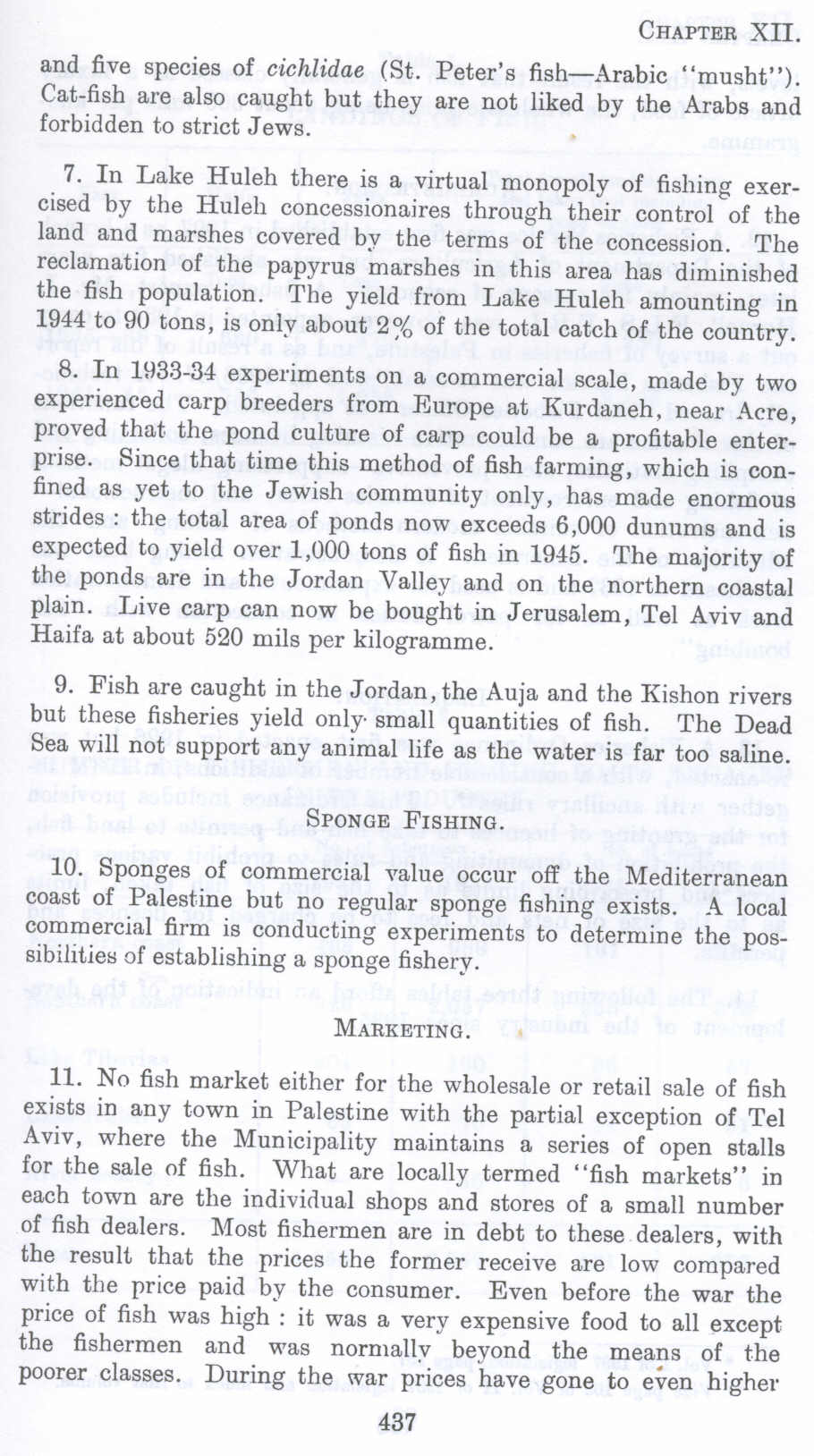| Prev | Next |  |
| Prev | Next |
| PalestineRemembered | About Us | Oral History | العربية | |
| Pictures | Zionist FAQs | Haavara | Maps | |
| Search |
| Camps |
| Districts |
| Acre |
| Baysan |
| Beersheba |
| Bethlehem |
| Gaza |
| Haifa |
| Hebron |
| Jaffa |
| Jericho |
| Jerusalem |
| Jinin |
| Nablus |
| Nazareth |
| Ramallah |
| al-Ramla |
| Safad |
| Tiberias |
| Tulkarm |
| Donate |
| Contact |
| Profile |
| Videos |
British Mandate: A Survey of Palestine: Volume I - Page 437 |
Disclaimer
The above documents, article, interviews, movies, podcasts, or stories reflects solely the research and opinions of its authors. PalestineRemembered.com makes its best effort to validate its contents.


Post Your Comment
*It should be NOTED that your email address won't be shared, and all communications between members will be routed via the website's mail server.
and five species of cichlidae (St. Peter's fish-Arabic "musht"). Cat-fish are also caught but they are not liked by the Arabs and forbidden to strict Jews.
7. In Lake Huleh there is a virtual monopoly of fishing exercised by the Huleh concessionaires through their control of the land and marshes covered by the terms of the concession. The reclamation of the papyrus marshes in this area has diminished the fish population. The yield from Lake Huleh amounting in 1944 to 90 tons, is only about 2% of the total catch of the country.
8. In 1933-34 experiments on a commercial scale, made by two experienced carp breeders from Europe at Kurdaneh, near Acre, proved that. the pond culture of carp could be a profitable enterprise. Since that time this method of fish farming, which is confined as yet to the Jewish community only, has made enormous strides : the total area of ponds now exceeds 6,000 dunums and is expected to yield over 1,000 tons of fish in 1945. The majority of the ponds are in the Jordan Valley and on the northern coastal plain. Live carp can now be bought in Jerusalem, Tel Aviv and Haifa. at about 520 mils per kilogramme.
9. Fish are caught in the Jordan, the Auja and the Kishon rivers but these fisheries yield only• small quantities of fish. The Dead Sea will not support any animal life as the water is far too saline.
SPONGE FISHING.
10. Sponges of commercial value occur off the Mediterranean coast of Palestine but no regular sponge fishing exists. A local commercial firm is conducting experiments to determine the possibilities of establishing a sponge fishery.
MARKETING.
11. No fish market either for the wholesale or retail sale of fish exists in any town in Palestine with the partial exception of Tel Aviv, where the Municipality maintains a series of open stalls for the sale of fish. What are locally termed "fish markets" in each town are the individual shops and stores of a small number of fish dealers. Most fishermen are in debt to these dealers, with the result that the prices the former receive are low compared with the price paid by the consumer. Even before the war the price of fish was high : it was a very expensive food to all except the fishermen and was normally beyond the means of the poorer classes. During the war prices have gone to even higher
Page 437